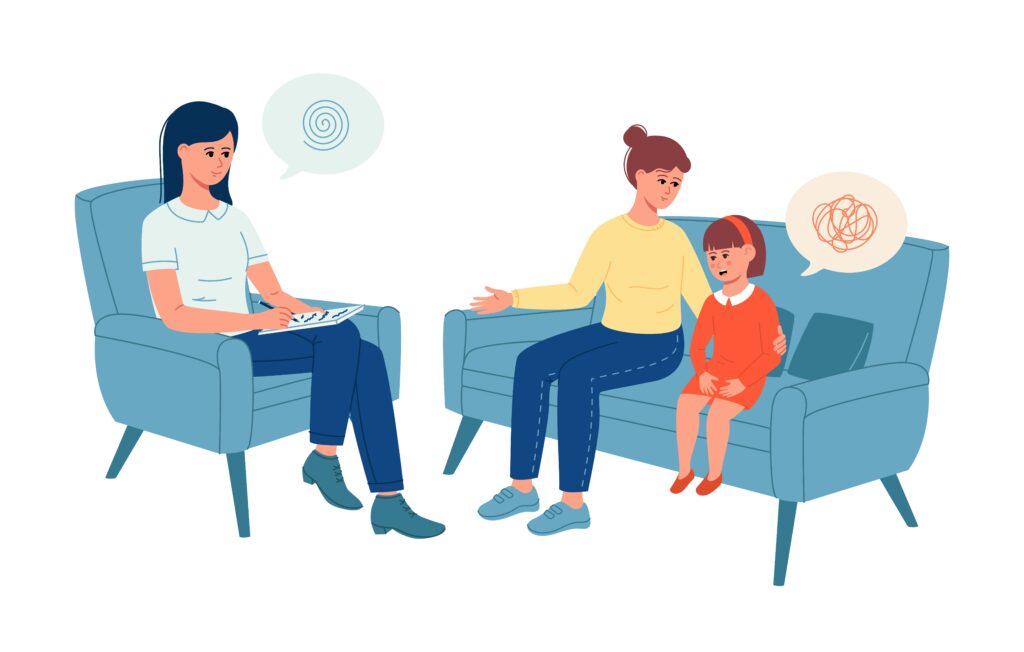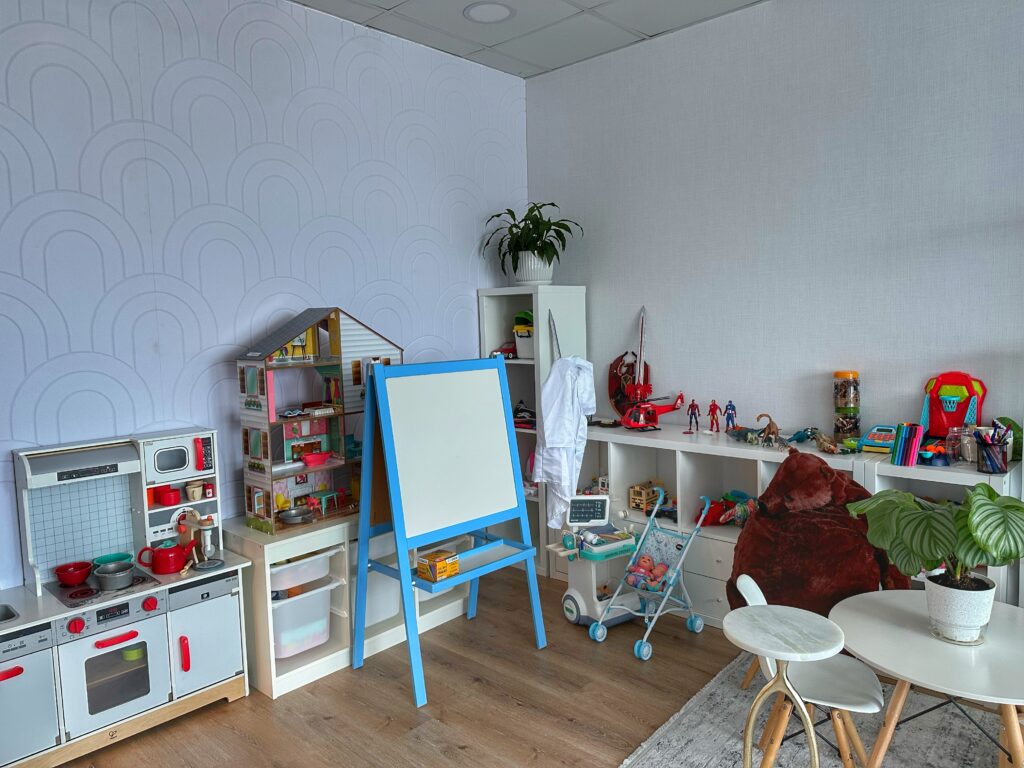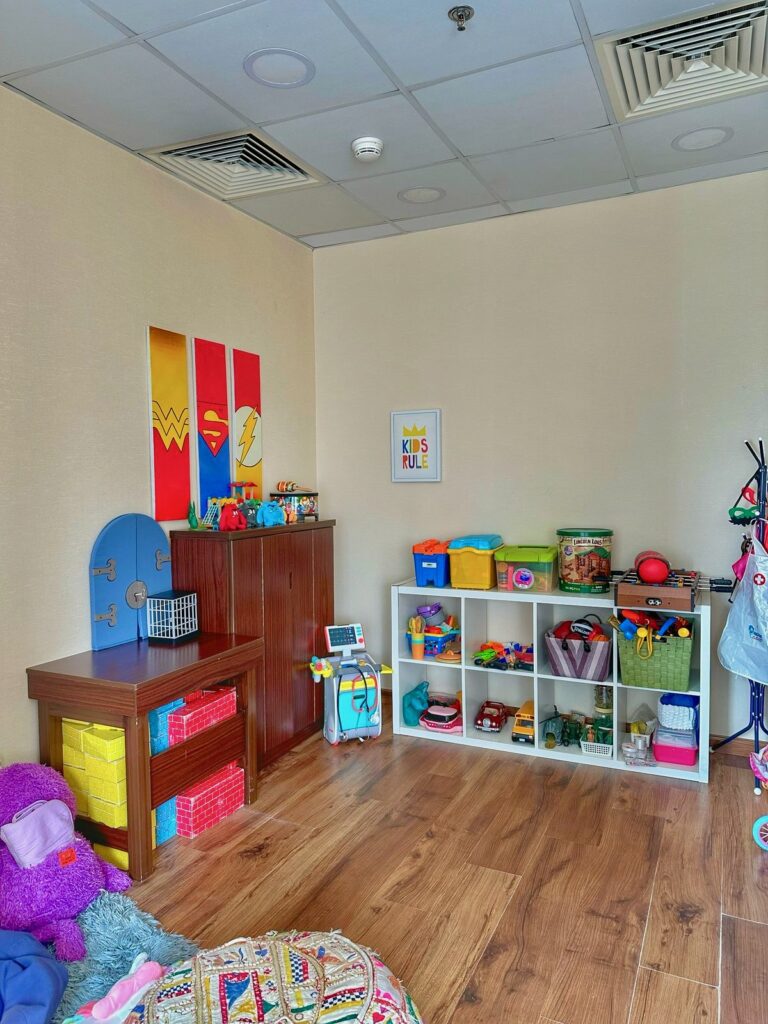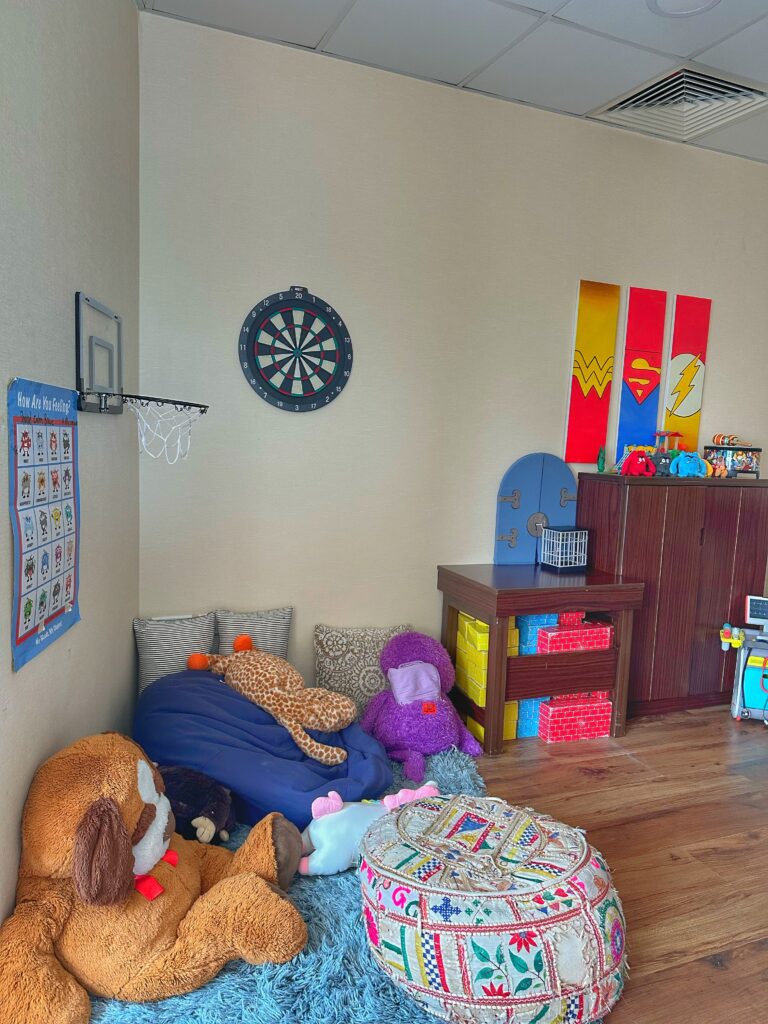Psychoeducational Assessments for Children and Teens
Do you feel your child or teenager is constantly struggling in school? Do they struggle with reading, comprehension, mathematics, or retaining the information they learn? We believe that success at school shouldn’t be so hard for children. If your child is struggling, a psychoeducational assessment (also known as an educational assessment) is the first step toward understanding their academic challenges. A comprehensive evaluation helps determine your child’s strengths and weaknesses, develops a plan to support their weaknesses and build on their strengths. Possible learning differences, cognitive weaknesses, and emotional factors may be identified that can be impacting their performance at school.
What Is a Psychoeducational Assessment?
A psychoeducational assessment for children is a thorough assessment of a child’s cognitive /intellectual functioning, academic skills, and emotional well-being. It helps create a profile of strengths and weaknesses, determine possible learning difficulties, such as reading disorders, memory problems, or attention challenges, and gives parents, teachers, and professionals a clear plan for supporting them.
Whether you're look for learning disability testing, a cognitive assessment, or an academic assessment for kids, a thorough psychoeducational assessment will provide the necessary insights into your chid’s learning profile in order to create a plan to best support them.
When to Consider Psychoeducational Testing for Children and Teens
-
Academic Struggles
Is your child frequently frustrated with homework or falling behind in class? If there is a struggle with reading, math, or writing, a psychoeducational evaluation for children can uncover the cause and guide intervention. Learn more about how psychoeducational assessments help shape better learning plans in school.
-
General Learning Difficulties
Signs like forgetting instructions, difficulty organizing tasks, or poor grades may indicate the need for a cognitive evaluation for kids or a full psychoeducational assessment.
-
Misunderstood Behaviors in School
Many children with learning difficulties are mischaracterized as lazy or unmotivated. Psychoeducational testing for academic struggles helps reframe the issue and supports a strengths-based approach.
-
Emotional Impact of Learning Challenges
Children who face repeated academic failure may become anxious, withdrawn, or discouraged. Assessing learning difficulties in children early can prevent long-term emotional effects and improve motivation.

Why a Psychoeducational Assessment Is Important
Succeeding and doing well at school shouldn’t be so hard for children. When school is a struggle, it does not mean your child is not intelligent. A psychoeducational assessment will allow parents and teachers to understand how a child learns best. When their challenges are identified (such as dyslexia, processing disorder, cognitive weakness, math disability…etc.) through learning disability testing, you can help your child thrive in the classroom and beyond.
The Process of Psychoeducational Assessments
A psychoeducational assessment for children or teens is a thorough, multi-step process designed to give you a complete understanding of your child’s learning profile. Here’s what to expect:
Step 1: Initial Parent Consultation
The process begins with an in-depth consultation with parents or guardians. This meeting allows us to gather important background and developmental information, understand your child’s academic history, and explore any concerns about learning, behavior, or emotional functioning. This step ensures the assessment is tailored to your child’s unique needs and helps guide the testing process.
Step 2: Testing Sessions with the Child or Teen
Next, your child or teen will participate in psychoeducational testing sessions. These sessions typically span 2–3 hours, completed over two or more days depending on your child’s age, attention span, and testing requirements. During this phase, we conduct a full cognitive assessment for kids, along with academic assessments and evaluations in areas such as memory, phonological processing, reading comprehension, and mathematics.
Step 3: Scoring and Report Writing
After testing is complete, we carefully analyze the results, score each assessment, and compile findings into a comprehensive report. This document outlines your child’s strengths, challenges, and recommendations for educational and emotional support. You can expect to receive the full written report within 14 business days after the final testing session.
Key Assessment Tools We Use
- Intellegence Testing: We use the Weschler Intelligence Scale for Chidren (WISC-V) to measures core intellectual abilities and help identify learning difficulties.
- Acievement Testing: We use the Weschler Individual Achievement Test (WIAT-III) for academic assessments for kids, including reading, math, writing, and oral language.
- Phonological Processing: The Comprehensive Test of Phonological Processing (CTOPP-2) is used to assess phonological processing, which is critical for decoding and reading comprehension.
- Memory Assessment for Children: We use using the Children’s Memory Scale (CMS) to provide insight into memory function for learning disability testing.
- Visual Motor Integration: The Beery-VMI assesses the coordination of visual perception and fine motor control.
- Attention: The Test of Everyday Attention for Children (TEA-Ch 2)- assesses attention capacity.
What Parents Can Expect from Psychoeducational Services
Parents who pursue psychoeducational services for children and teens can expect:
- Detailed Reports – A clear breakdown of your child’s cognitive and academic profile.
- Targeted Recommendations – Based on your child’s unique learning style, with specific support strategies.
- Collaboration with Schools – Helping implement strategies like IEPs using the insights from the child’s educational assessments.
Who Should Consider a Psychoeducational Evaluation?
- Parents concerned about learning difficulties and cognitive development
- Teachers identifying students with academic challenges
- Teens and children struggling with memory, attention, or emotional regulation
- Students with suspected learning disabilities who may benefit from WISC-V testing or comprehensive educational assessment
Take the First Step Toward Academic Confidence
If you’re noticing academic challenges in teens or suspect learning difficulties in children, a professional psychoeducational assessment can make all the difference. By identifying the root causes of struggle and recommending clear, actionable strategies, we help children build confidence and achieve their potential.
Contact us today to schedule a consultation or learn more about our expert psychoeducational services for children and teens.
Frequently Asked Questions
A psychoeducational assessment for children evaluates cognitive skills, academic abilities, and emotional functioning to identify learning differences and possible developmental concerns.
Our Safe Space













